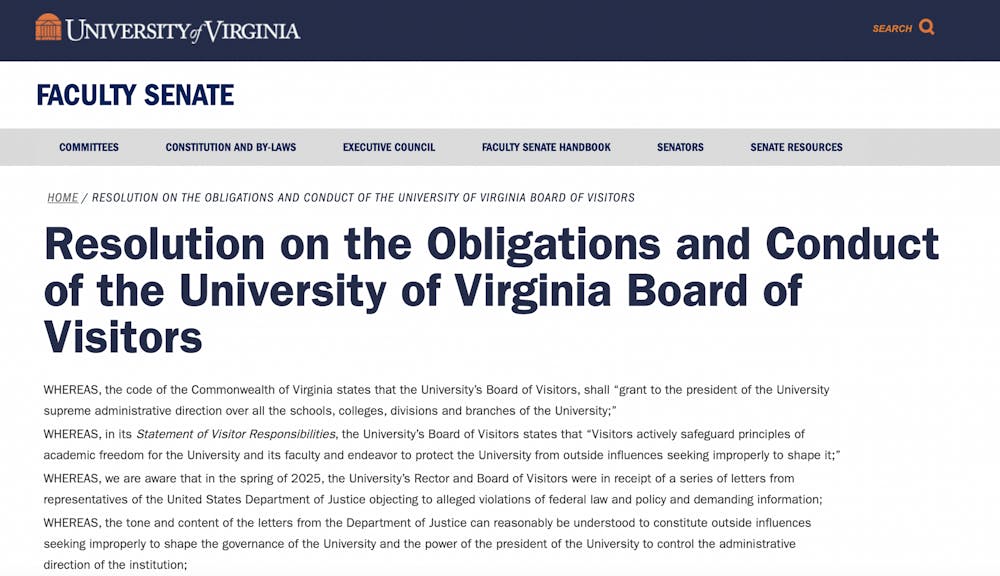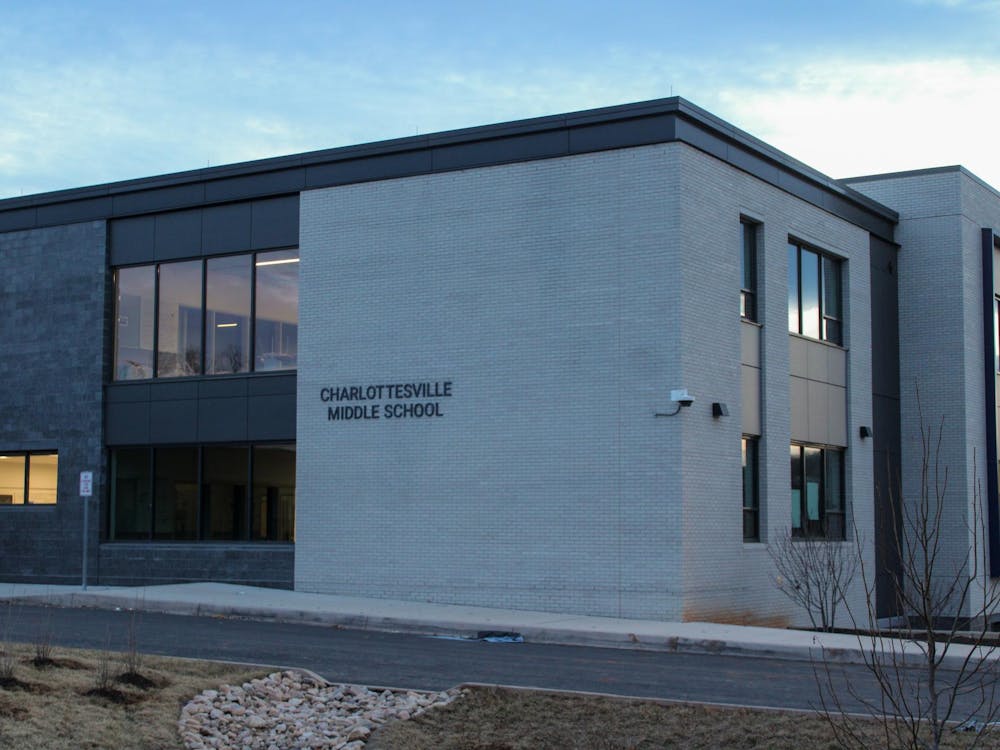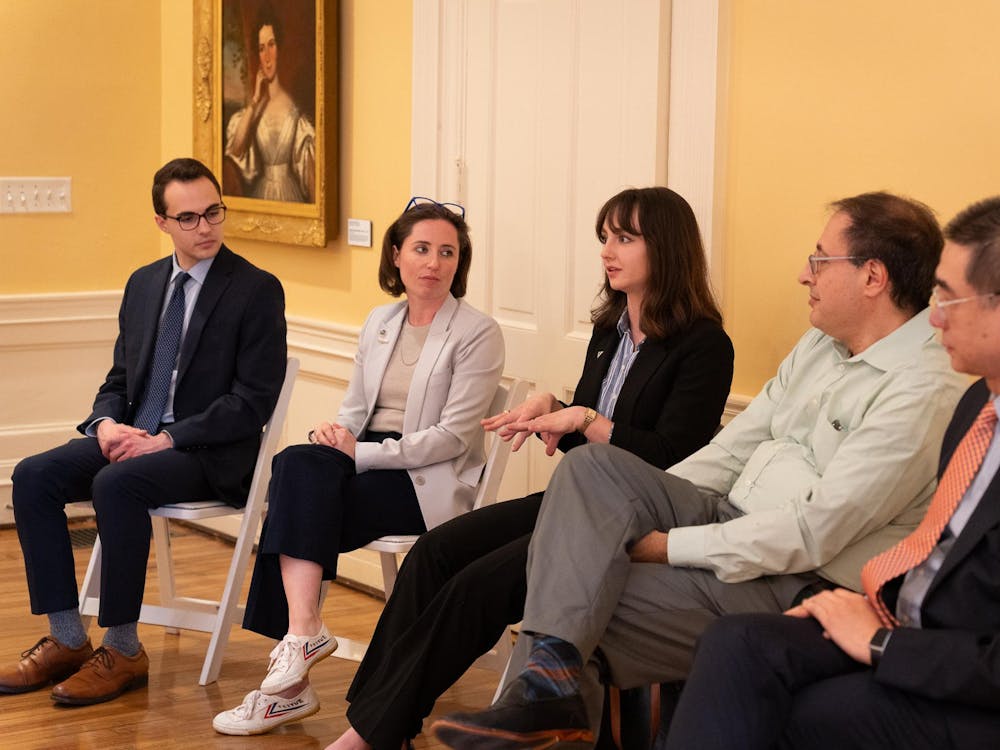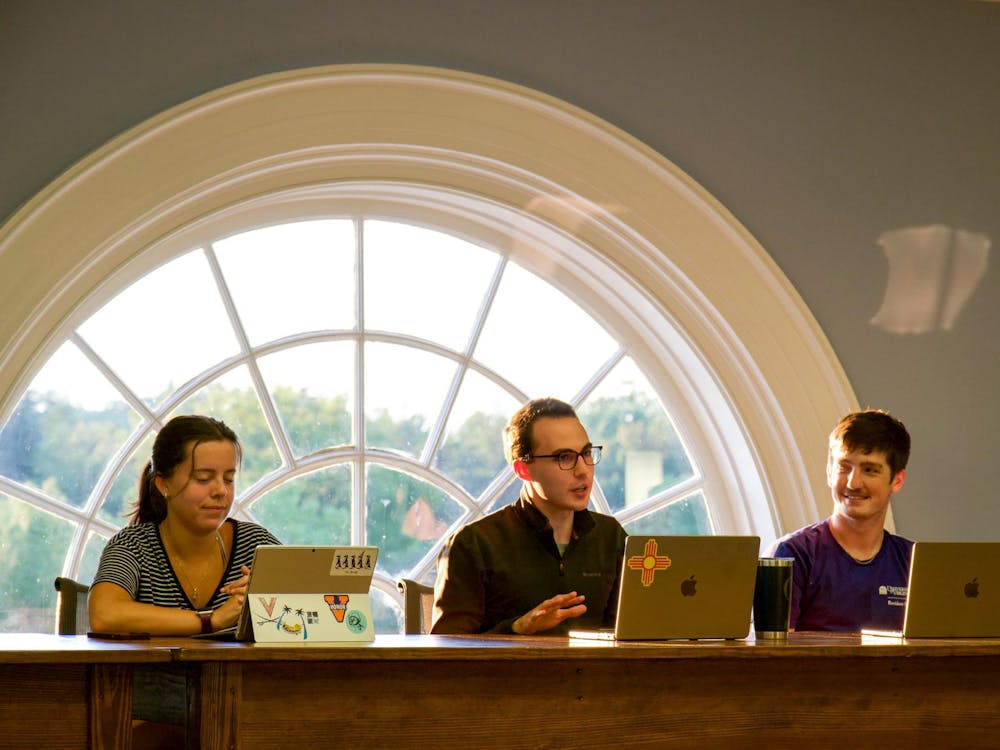The Faculty Senate held an emergency meeting Friday as part of ongoing discussions surrounding the University’s next steps towards choosing a new president. In the meeting, the Faculty Senate passed a resolution for a vote of no-confidence in the Board. The resolution passed 46 to 6, with eight senators abstaining.
"The Faculty Senate expresses no confidence in the Board of Visitors for not protecting the University and its president from outside interference, and for not consulting with the Faculty Senate in a time of crisis, actions that are inconsistent with its duties under the Code of Virginia and the Board’s Statement of Visitor Responsibilities," faculty said in the resolution.
Hundreds of faculty members — including over 900 on Zoom — took to the Chemistry Building’s 484-seat lecture hall to hear from the Faculty Senate Executive Committee as well as members of the Board of Visitors.
Chief Operating Officer Jennifer Wagner Davis has taken over as acting president until an interim president is chosen and was in attendance. She has spoken with faculty leaders on multiple occasions leading up to her term as acting president, but this was the first time as acting president.
Also present for part of the meeting on Zoom were two members of the Board of Visitors — Rector Rachel Sheridan and Vice Rector Porter Wilkinson — who said that the Department of Justice believes they have evidence of “significant violations.” No other Board members attended the meeting.
After remarks from Faculty Senate Chair Jeri Seidman and interim executive vice provost Brie Gertler, Sheridan made her statement, in which she addressed recent protests and community-led action post-Ryan.
“We have been on the receiving end of inflammatory communications that are inaccurate,” Sheridan said, referring specifically to the claims that she was negotiating with the Department of Justice before her term as Rector began.
Kim Acquaviva, Betty Norman Norris endowed professor of nursing, cited the DOJ letters which had been addressed to Sheridan before her July 1 starting date as Rector.
“We know from DOJ letters addressing you as ‘Rector’ weeks earlier that you were the person negotiating with the DOJ on behalf of the BOV in June,” Acquaviva said. “That’s a heavy burden to be carrying, especially given your failure to get an agreement in writing from the DOJ before asking President Ryan to resign.”
Acquaviva went on to cite Sheridan’s experience as an attorney, implying that she should have been more equipped to get written concessions from the DOJ.
“Since you’re an attorney who negotiates high stakes deals professionally, fumbling this ball must be embarrassing. It also must make you wonder where things went wrong – the same question we’re wondering, too.”
Acquaviva also raised the potential of a formal investigative hearing by the General Assembly into the Board’s actions and involvement with the Department of Justice. Hundreds of attendees agreed that an internal investigation would be productive.
Sheridan, however, persisted in her statement that she was not negotiating with the DOJ.
“Your facts are inaccurate,” Sheridan said. “I was not negotiating with the DOJ.”
Some faculty members responded by shouting “shame.”
Sheridan then said that she had reached the time limit that the Faculty Senate had requested and left the meeting.
Next, Seidman read a written statement prepared by Michael Kennedy, former Faculty Representative on the BOV.
In the letter, Kennedy said that the Board was unable to complete every agenda item from its June 6 meeting, and that there was an intent to schedule a follow-up special meeting. However, due to scheduling conflicts — and later litigation by Virginia Democrats — that meeting did not happen.
“I received no further emails about the DOJ situation from the full board or any individual member from email or phone,” Kennedy said.
Kennedy also noted that he felt fully included and valued as a Board member, and that he felt faculty-Board relations were positive this year.
However, Kennedy said that he learned about Ryan’s resignation from the New York Times — not a Board or DOJ source.
“I have learned nothing about what has transpired outside of the media,” Kennedy said.
After Kennedy's statement was read aloud, the meeting then transitioned towards discussing potential resolutions. Among discussed topics were a vote of no confidence on the Board, and the process of selecting an interim president.
“Where is [former Rector Robert Hardie] in all this?” a faculty member said. “It was his leadership, his agenda at all those meetings. I fear we’re going to make this a partisan issue [if we target Sheridan and Wilkinson].”
One faculty member was unsure that a vote of no confidence was warranted in this moment, citing an insufficient amount of information and warning the faculty against reacting in the moment.
“I’m getting ready for the boo birds, but I oppose both resolutions,” a faculty member said. “I don’t think that's accurate [that the Board endeavored to not protect the University]...“I’m not saying they did everything right, I just think we need more information for a vote of no confidence. I think it reflects poorly on the faculty to do a kneejerk reaction of no confidence.”
A different faculty member was quick to respond, and her response evoked a round of applause from attendees.
“We are facing an authoritarian, fascist government,” a faculty member said. “No question about it … We did not rush to judgment.”
Ultimately, the Faculty Senate adopted the no confidence resolution 46-6 before the timeframe of the meeting had expired.
A resolution regarding the selection of an interim president also passed 44-3 and called on the Board to be transparent regarding this process and ensure that the interim president is someone with a sustained commitment to higher education and inclusive leadership.
Before the meeting, associate professor Ian Mullins expressed frustration over Sheridan and Wilkinson noting that while they espoused a “commitment to shared governance,” they would likely be moving forward however they see fit.
“We're concerned that they're trying to circumvent a democratic process for selecting our next leader,” Mullins said. “And given that the interim president has the full powers of the office of the presidency, we think this needs to be a slower, more deliberate choice that has an honest engagement with all of the stakeholders.”







